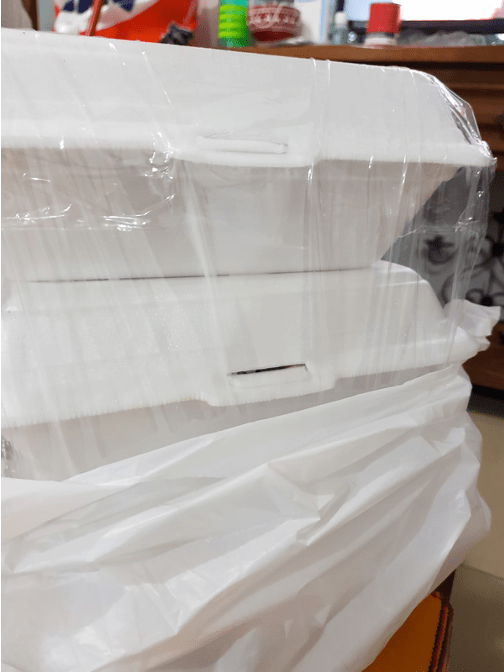COVID-19 and its Influence on Online Business and the Environment in Peru
I was sitting on the couch in the living room when someone knocked on the door. Roinner, the second child of my host family in Chiclayo, Peru went to the door with a smiling face and received a package. I asked him what it was. He said it was Ceviche, a typical north-Peruvian dish that consists of raw fish and seafood marinated in lime and lemon juice, that he has ordered from his best friend, Patty. Since the quarantine started from March 15, 2020 in Peru, there are many food entrepreneurs in Peru that are changing their business concepts to online and delivery orders. In addition, due to many termination of employment caused by quarantine that lasted for 109 days, made many people switch professions to online businesses or even some people take advantage of this moment as an opportunity to start an online business, like Patty did.
Opportunity in the middle of a pandemic
After I tasted the Ceviche made by Patty, I was interested in asking Patty about her business that had just been established on June 12, 2020. Patricia Gavidia Guerrero, a 7th semester student in communication at the Universidad San Martín de Porres Chiclayo, mentioned that the current pandemic was an opportunity for her to realize her dream of establishing the Ceviche food business that she loved so much. With the fulfillment of requirements and permits from the Peruvian Ministry of Health (MINSA), finally Conlimón (the name of Patty’s Cevicheria) officially operates. The requirements requested by MINSA include the use of shoe caps, face masks, hair caps, gloves, double plastic wraps, disinfectants, alcohol spray, double-protection packaging, face shields, and coveralls and maintaining the hygiene and the distance to the business owners, the chefs and delivery officers as well as the use of a thermometer to check the body temperature of everyone participating. Patty is one of the many new entrepreneurs who have appeared as a result of this pandemic. Due to the restrictions of activities outside the house, which were permits to leave the house only from 6 a.m. to 4 p.m., and on Sundays there was absolutely no activity outside the home, making most Peruvians order food through the internet and apps that make the users of food apps increasing.
The money farm or the waste field?
However, are the recommended health protocols really effective? Patty said the health protocols required by MINSA did not have much effect because there was no supervision or checking of online business people who do pick-up orders, so that some entrepreneurs do not follow existing regulations because of the high cost of all licensing processes and equipments needed. Patty claimed that to buy a thermometer she had to pay 1000 Soles (253 Euros) which before quarantine should cost around 80 Soles (21 Euros). Meanwhile, to obtain a permit, Patty must pay 5000 Soles (1264 Euros) which usually could be obtained for free. Even so, Patty still follows the existing health protocols because she is very concerned about the health of her customers, employees and also herself. Patty later said that she deeply regretted the effects of health protocols that had a bad impact on the environment. The use of face shields, hair caps, coveralls, shoe caps and face masks as well as double packaging of products ordered online makes waste in Peru more and more. The absence of other alternatives or products that can be recycled makes cleaning staff exhausted in cleaning the excessive COVID-19 waste. They are also afraid because most people just throw it away on the road without paying attention that the waste they throw still contains viruses. French non-profit Opération Mer Propre through The Guardian said that there are more used masks than jelly fish in the ocean, which shows that COVID-19 waste ends up at sea, which leads up damaging the marine ecosystem because the waste merges within 450 years. Regarding this matter, Patty stated that she still tries to use products that can be recycled such as recyclable cups and meal boxes, paper bags and reusable masks. “COVID-19 is not a reason for us to harm our planet. Therefore, I still want to take care the environment and try as much as possible to avoid using products that cannot be recycled,” Patty continued.


The increase of online businesses that use pick-up services during this pandemic sets a new challenge and also a chance for Peru in terms of improving the economic sector and empowering the environment. Peru, that has just started a waste management program in 2018, gets a new assignment with the residual waste of COVID-19. The unclear regulations applied by MINSA have not been able to answer citizens’ anxiety about the COVID-19 problems and the new obstacles that result from it which have an impact on the environment. Patty is right that COVID-19 is not our reason for not keeping the environment clean and sustainable. This is a joint task, for business stakeholders, civilians and also the government. Clear rules, obedience and self-awareness to maintain the environment in the middle of a pandemic that is happening, should be able to help reduce the burden of the earth that is already heavy.
Autorin: Ni Luh Gita Gayatri Sumantra
*Dieser Beitrag ist im Rahmen des Kurses Krisenmanagement in der globalen Sars-Cov2 / Covid19 Krise entstanden.
